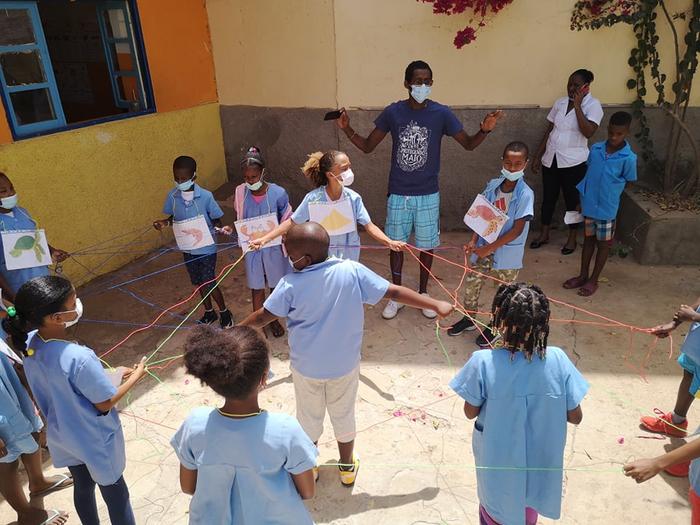Increasing understanding of conservation issues in schools doesn’t necessarily translate into attitude change, says new research from the Milner Centre for Evolution at the University of Bath.

Credit: Romy Rice
Increasing understanding of conservation issues in schools doesn’t necessarily translate into attitude change, says new research from the Milner Centre for Evolution at the University of Bath.
The findings, published in Oryx, suggest that conservation educational activities should be evaluated carefully to make sure they are achieving the desired objectives.
With increasing urbanisation and advances in technology, children’s exposure to the natural world has decreased.
To respond to this, conservationists have promoted educational activities to increase children’s understanding and awareness of environmental issues, but new research shows that this doesn’t always translate to them changing their attitudes or encourage them to become more involved in protecting the environment.
In a study published in Oryx, researchers from the University of Bath worked with conservation non-profit Maio Biodiversity Foundation (FMB) in Maio, Cape Verde, to assess the impacts of environmental education on schoolchildren from the island.
The Cape Verde Islands, near the west coast of Africa, are powerhouses of evolution, home to an abundance of wildlife, including whales, turtles, sharks and shorebirds.
However, unsustainable practices such as turtle poaching, off-road excursions through protected areas, and large scale litter dumping threatens to put local wildlife at risk.
The researchers investigated the influence of a one-time classroom activity on children’s knowledge of local environmental issues, environmental attitudes and future aspirations.
The half-day activity, with 10 classes of 9–10-year-olds (4th grade) across eight schools (around 140 children), was focussed on the large wetland habitat of the island that is home to a wide variety of wildlife, including the largest breeding population of plover shorebirds that are genetically unique to the island.
The researchers talked to the children about the different species found locally, the environmental issues that threatened the wildlife and used a game activity to show the complex ecosystem of the area, helping the children understand how all the different parts were connected.
They assessed the children’s conservation knowledge, and attitudes to science and the environment before and after the activities to see how it had changed.
They found that whilst the activity was successful in improving the children’s knowledge and awareness of environmental issues, it did not change their attitudes towards animals and other wildlife.
Romy Rice, PhD student at the Milner Centre for Evolution at the University of Bath, was first author on the paper.
She said: “There is a real need to reconnect society with nature – especially in places of rich biodiversity, like Maio. It is so important to raise awareness of how certain human activities can put the amazing wildlife on people’s doorstep at risk.”
“Educating schoolchildren about conservation increases eco-awareness among their parents too, so it could be a powerful tool to influence knowledge and positive attitudes towards the environment across generations.
“We were surprised that although the activities increased the children’s knowledge, it didn’t necessarily change their attitudes towards nature. In some cases it actually decreased their interest in science.
“This study shows the importance of evaluating activities – we shouldn’t assume that increasing knowledge will help solve environmental issues.
“Instead we must carefully plan and assess activities to make sure they are achieving the desired objectives.”
Herval Silva, Assistant for Sustainable Development at FMB and co-author on the study, said: “This project was great to see how children learn and how we can improve their learning, especially when it comes to their understanding of our island’s biodiversity and their appreciation of the local wildlife.
“Right now, these children are the future of conservation, so the more we understand how they feel towards the environment, the better we can go on to develop ways to protect it.”
Romy plans more research to assess whether field trips are more impactful than classroom activities, or whether it simply distracts them.
Romy Rice is funded by the Evolution Education Trust, a charitable trust that funds the use of evolutionary science in research, interventions, education and outreach.
Journal
Oryx
DOI
10.1017/S0030605323000303
Article Title
Environmental education in the classroom: pilot study in Cabo Verde suggests differing impacts on local knowledge and environmental attitudes
Article Publication Date
31-Jul-2023




